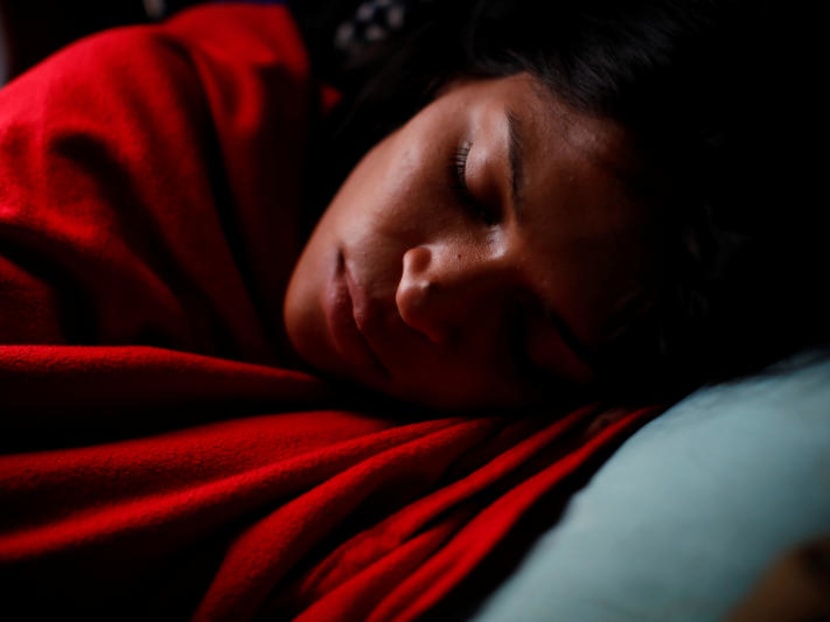Why tech titans should disrupt sleep next
When you consider what technologists have invented for us, you have to ask if it is not time we got more woke about sleep. In particular, I am beginning to question when all the tech titans who are slowly training us in new patterns of behaviour are going to disrupt the, frankly, analogue time patterns.

The author argues that there simply aren’t enough hours in the day to do all the unnecessary things we have got used to doing and only optimised slumber can save us.
Increasingly, I’m starting to wonder if sleep is for wimps.
It didn’t seem to be when I was younger, and it still feels like something that might be important, but when you consider all the exciting alternatives technologists have invented for us, you have to ask if it is not time we got more woke about sleep.
In particular, I am beginning to question when all the tech titans who are slowly training us in new patterns of behaviour are going to disrupt the, frankly, analogue time patterns.
Think about it.
They have done all the hard work, teaching us to stay online long after a sensible being would have switched everything off, but they have yet to deliver on the sleep efficiency that would allow greater connectedness.
All those productivity gains that technology has brought us, and yet you still can’t get seven hours’ sleep in less than seven hours.
So much else has got faster and more efficient, yet sleep remains as time-consuming as ever. Where’s Elon Musk when you need him? Any fool can build a faster train.
Sleep optimisation, that’s the next big thing — the science of Narcofficiency, or maybe Dormantics. And this is not just about efficiency. Sleep is no use to any commercial organisation apart from the makers of mattresses and anti-snoring devices.
Our resting hours are a productivity desert. It’s amazing that Mark Zuckerberg is even permitting this level of slumber.
This is six to eight hours every day when people are not using Facebook, WhatsApp or Instagram.
He talks about wanting to connect the world but users are dropping off the grid for up to eight hours daily.
This must be the next frontier: Facebook Dreamstate keeps you connected even when you think you are offline. Why waste those words of wisdom uttered in your sleep? Let Facebook record and pump them out.
Update your settings so Facebook can wake you with any big news or remind you more expeditiously of your memories from four years ago, about which it cares so much.
And why should your friends have to wait till tomorrow for a reply just because you went to bed before them? Think about all those group chats going on without you.
These are serious social inefficiencies. But it need not be purely social.
LinkedIn could launch the Night Network; dress code — midnight casual.
This may seem flippant but sleep optimisation now looks like the only solution.
Leave aside the pressures increased connectivity has placed on adult workers, and consider how our children are being trained by tech.
They are being taught to exist in a state of constant connectedness.
Just forcing the spawn to turn off their phones at mealtimes is a battle and is probably not conducive to leisurely lunchtime chats.
As for the evenings, it’s a wonder they ever switch off. In the old days, when I were a nipper, there was nothing much to do at home after 9.30pm.
There was only one TV, it was in the lounge and there wasn’t anything worth watching anyway. The telephone was downstairs or in your parents’ bedroom, so you couldn’t spend hours gassing with your mates.
Basically, you could read a book, listen to John Peel or go to sleep.
Now the possibilities are endless; I don’t know how we ever get the children to give it a rest. Aside from all the videos and games, they can spend the entire night chatting with friends in different Tube zones.
A teenage girl does not want to be the first to leave a group chat.
We now face the digital equivalent of Parkinson’s Law, in which social media expands to fill the time available.
It’s just so easy to pick up one’s phone and reflexively flick through Twitter or Facebook even as you are meant to be having a conversation.
There is, it seems, no walk so short that it can be concluded without sending a message or text. No restaurant experience is complete without the sight of a dozen heads looking down at the sound of a nearby ping.
There simply aren’t enough hours in the day to do all the unnecessary things we have got used to doing.
Sleep is getting in the way of all this inessential activity. Only optimised slumber can save us. THE FINANCIAL TIMES
ABOUT THE AUTHOR:
Robert Shrimsley is editorial director of the Financial Times, having served as the FT’s chief political correspondent, news editor, managing editor of FT.com.






